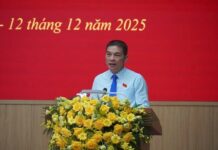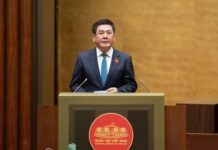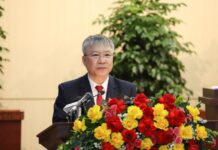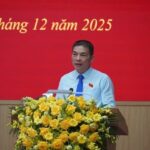On September 6, the Ministry of Planning and Investment (MPI) organized a workshop to gather opinions from provinces and cities in the Northern Mountainous and Red River Delta regions regarding the Law on Public Investment (amended).
This event was part of a series of workshops held to collect feedback on the following laws: Law on Public Investment (amended); Supplementing a number of articles of the Law on Planning, Law on Investment, Law on Investment in the form of Public-Private Partnership, and Law on Bidding.
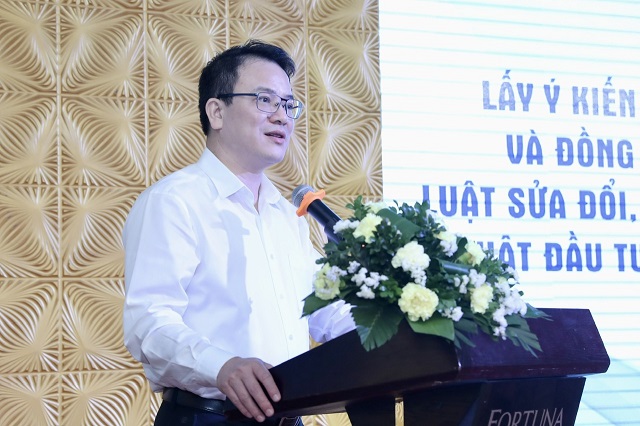 Vice Minister of Planning and Investment Tran Quoc Phuong speaking at the workshop.
|
Speaking at the event, Vice Minister Tran Quoc Phuong of the MPI stated that the 2019 Law on Public Investment introduced numerous innovative and breakthrough contents in terms of thought and management perspective on public investment. It promoted decentralization, streamlined administrative procedures, and enhanced the autonomy and accountability of heads of ministries, sectors, and localities in managing public investment.
As a result, there has been an improvement in the quality and efficiency of public investment capital utilization, and faster implementation of many strategic and important infrastructure projects, such as inter-regional and coastal highways. This has led to noticeable achievements in realizing the strategic breakthrough in infrastructure development.
“However, after nearly five years of implementation, the 2019 Law on Public Investment has also revealed certain challenges and bottlenecks that need to be addressed. Some provisions are no longer suitable for the practical situation and the new development requirements. At the same time, it is necessary to institutionalize some experimental mechanisms and policies recently issued by the National Assembly,” shared Vice Minister Tran Quoc Phuong.
Following the directions of the Government and the Prime Minister, the MPI has promptly taken the lead in coordinating with ministries, central agencies, and localities to prepare relevant documents. These were reported to the Government and submitted to the Standing Committee of the National Assembly for approval to be included in the 2024 Law and Ordinance Building Program. It was also presented to the National Assembly for permission to apply the abbreviated procedure and for approval at the 8th session of the 15th National Assembly within one session.
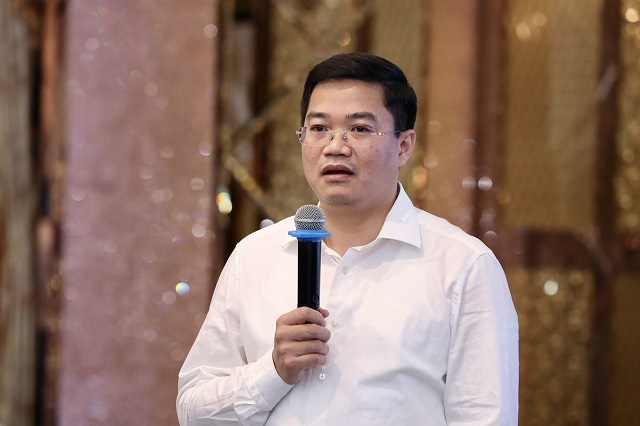
Mr. Do Duc Tam, Director of the Department of National Economy, MPI, provided information at the workshop.
|
Regarding the content of the Law on Public Investment (amended), Mr. Do Duc Tam, Director of the Department of National Economy, MPI, outlined five main groups of amended policies: (1) Institutionalizing experimental and special mechanisms and policies that have been permitted by the National Assembly; (2) Further promoting decentralization and devolution of power; (3) Enhancing the quality of investment preparation, mobilizing resources, and improving the capacity of localities and state-owned enterprises to implement public investment projects; (4) Promoting the implementation and disbursement of ODA capital and concessional loans from foreign donors; (5) Simplifying procedures, supplementing and clarifying concepts, terms, and provisions to ensure consistency and uniformity in the legal system.
Based on this, the MPI has proactively drafted the Law on Public Investment (amended), encompassing 29 new policies. They have sought feedback from ministries, two central agencies, and localities. Additionally, three conferences will be organized to gather input from representatives of the People’s Committees, departments, sectors, project management units, and economic zone management boards across the country to finalize the Law.
“This revision of the Law on Public Investment is very comprehensive, and the timeline is tight, as it is expected to be approved at the 8th session of the National Assembly. The focus is on high-quality amendments to fundamentally address challenges, limitations, bottlenecks, and improve capital efficiency, as well as unlock resources for development,” emphasized Vice Minister Tran Quoc Phuong.
At the workshop, representatives from ministries, sectors, and localities, who have been directly involved in implementing the provisions of the Law on Public Investment over the years, actively contributed their opinions, proposals, and recommendations. The MPI will carefully consider and incorporate this feedback to finalize the draft Law, ensuring its feasibility and effectiveness upon approval by the National Assembly.













